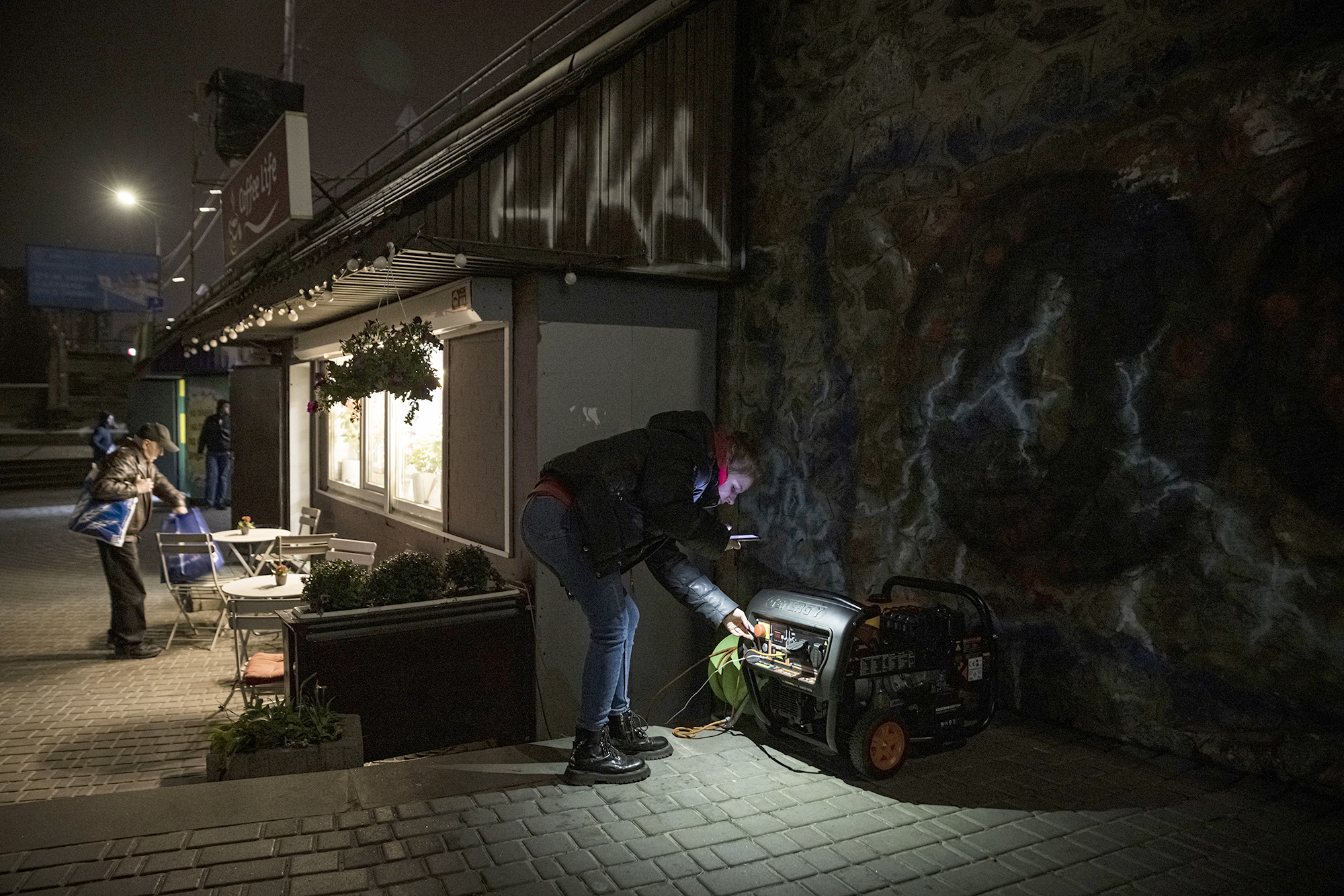Ukrainians endure power outages amid Russian strikes on infrastructure
Ukrainians are being urged to save electricity as winter approaches.
As darkness descends on the Ukrainian capital, the consequences of the waves of Russian missile strikes against critical energy infrastructure become apparent.
There's no street lighting in many places around Kyiv, with people carrying flashlights or just their mobile phones with lights on to navigate around. Even traffic lights go off from time to time -- all part of the new reality that residents are getting used to.
After the first massive Russian strike on Oct. 10 on energy facilities in various regions, Ukrainians have been warned of expected blackouts and outages and urged to save as much electricity as possible. The most popular commercial to watch on TV (that's when the lights are on and the TV works, of course) is the government appeal to help stabilize the energy network: switch off as many appliances as possible, especially from 7-9 a.m. and between 7-11 p.m.

As a result of Russian missile attacks on Wednesday, more than 10 million Ukrainians are currently without electricity, according to Ukrainian President Volodymyr Zelenskyy. Most of them are in Vinnytsia, Odesa, Sumy regions and Kyiv, he said.
The governor of Kyiv region said Thursday that at least 78% of customers are affected by power outages in one way or another. Last week, 350,000 households in Kyiv alone were without electricity, roughly half of the city, Mayor Vitali Klitschko said.
Then there's public transport used by hundreds of thousands of residents every day with a vast network of metro, tramway and trolleybus lines -- all needing power, yet needed to save power. Hence, less services and longer intervals between them: waiting for the metro train for 10 minutes instead of 2-3 minutes is a new norm, if service hasn't been stopped altogether as it happens every time when air sirens signal the threat of another missile strike.
The worst is yet to come, officials warn, saying energy companies have run out of spare parts to repair essential infrastructure and appealing to international partners for urgent technical help. But any supplies will take time and for now people are told to prepare not just for planned blackouts but for emergency outages lasting hours.
This would be the best case scenario, says Dmytro Sakharukm, the CEO of DTEK, the biggest energy company in Ukraine, adding that a more realistic scenario includes having permanent blackouts with planned electricity supplies at intervals.

Not many residents will take those warnings with great optimism as the weather is not on their side either. With the first snow in Kyiv overnight on Thursday and more expected by the weekend, pressure will be mounting on energy systems as plunging temperatures mean the heating network will be more and more hungry for power.
The majority of households in Kyiv and the region have been affected by outages, yet it's a matter of luck.
Much of it depends on where exactly you live in Kyiv and which generator and transformer facilities or power lines have been damaged. In general, residents on the left bank of Dnipro River have been affected much worse due to the higher number of industrial facilities and residences in the area that require more power.
Serhiy Holichenko, a resident of Schaslyve, a town about 3 miles outside Kyiv, told ABC News that the temperature outside was not yet a major concern but he is worried about his electric stove getting power.
"You never know when you'll be able to cook or just heat your meal," he said.




